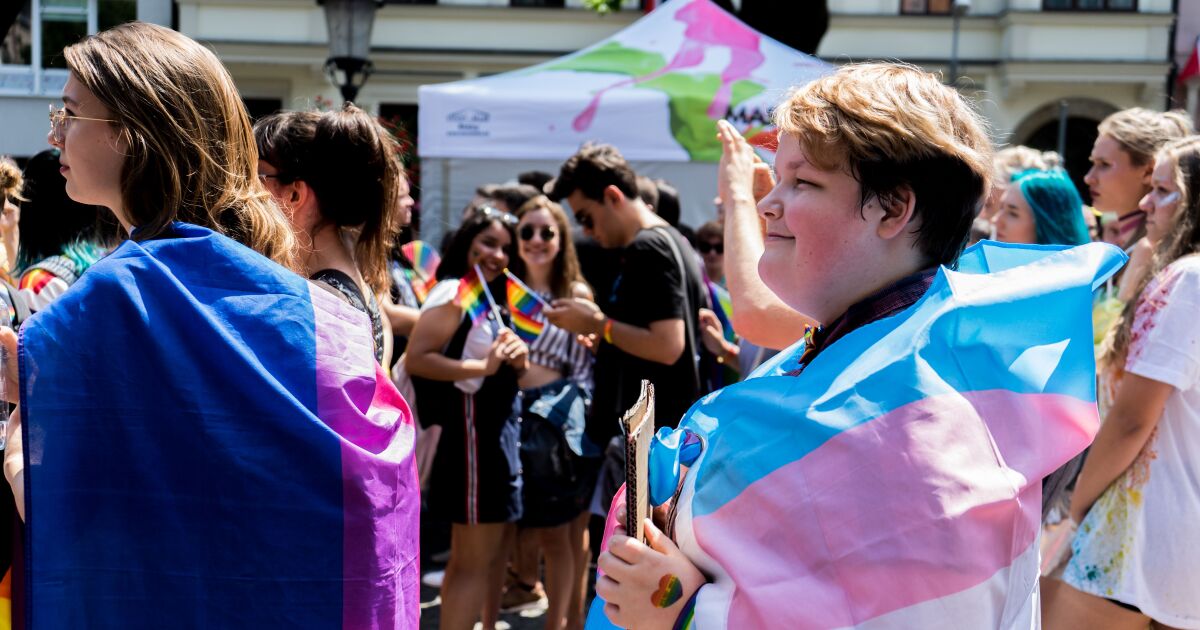

The American Academy of Pediatrics decided to “reaffirm” its stance on pushing child gender transition operations but ordered a “systematic review” amid a growing number of states outlawing the practice.
The AAP’s Aug. 4 decision to “reaffirm” its green light for child gender transition procedures is under the microscope as more than 20 states have outlawed the practice and European doctors have taken the opposite approach.
UP FOR DEBATE: WHERE TRUMP, DESANTIS, AND REST OF REPUBLICAN 2024 FIELD STAND ON KEY ISSUES
The AAP also appears confident the review will justify its current position on allowing children to pursue genital mutilation and chemical castration, with CEO and Executive Vice President Mark Del Monte saying part of the group’s “mission” is to “ensure young people get the reproductive and gender-affirming care they need.”
That position is outlined in its October 2018 policy statement, which fully embraces aspects of child gender transition, from pronouns and restrooms to drugs and surgeries.
The goal of the review is to provide pediatricians with technical reports, data, and research on the subject since it issued the 2018 statement, which the AAP says will be useful for its position in a legal setting where irreversible medical interventions for children are illegal in nearly half the United States.
However, looming large over the AAP’s review is the persistent and growing number of reports and decisions from the medical leadership of Western European countries sounding the alarm on the so-called “gender-affirming care” model for children.
“In the face of increasing evidence that so-called gender-affirming care likely does more harm than good in the opinion of the leaders of the field of gender medicine in Norway, Finland, Sweden, and the United Kingdom, the American Academy of Pediatrics is doubling down in support of the current approach,” Dr. Stanley Goldfarb, chairman of the medical advocacy group Do No Harm, told the Washington Examiner. “No doubt, if they do perform a valid systematic review in a transparent and honest fashion, they too will come to the conclusion that this activity needs to be dramatically curtailed, and only the very rare child should be exposed to this treatment.”
A study from Goldfarb’s organization that came out at the beginning of the year revealed that the United States, compared to Europe, is the “most permissive country when it comes to the legal and medical gender transition of children.”
Some of the dichotomy is explained by the AAP’s “affirm-only/affirm-early” policy it has maintained since 2018, the study notes. The 2018 guidance even admits that the data on “affirmation” is “limited.”
France is the closest in permissiveness to the United States, the study says, but “France’s medical authorities have recognized the uncertainties involved in transgender medical care for children.”
Indeed, France’s National Academy of Medicine urges “great medical caution” for children, given the psychological and other vulnerabilities already present in those who would consider the interventions, as well as the “many undesirable effects, and even serious complications, that some of the available therapies can cause.”
The 2022 report from France on guidance for child gender transitions highlights complications with cross-sex hormones like stunted growth, bone fragility, sterility, emotional and intellectual damage, and young girls experiencing menopause-like symptoms. For surgeries, the report warns, “their irreversible nature must be emphasized.”
Furthermore, France describes the massive spike in transgender-identifying children as “epidemic-like” with “primarily social” roots, adding it is exacerbated by “excessive consultation of social networks, greater social acceptability, or example in the [group].”
France is not the only country.
The United Kingdom’s National Health Service said children who believe they are transgender are simply going through a “phase” and warned against allowing children to even change their names or pronouns.
Those forms of “social transition,” including dressing like the opposite sex, are not “neutral acts,” the NHS study found, but rather have “significant effects” on “psychological functioning.”
The entire child transition enterprise has “scarce and inconclusive evidence to support clinical decision-making,” the study found. The NHS has placed bans on transition drugs for children and shut down the country’s only gender transition clinic for children finding it “not safe.”
Norway, Finland, and Sweden have also raised significant concerns with the interventions, with Finland’s top gender medicine expert, Tampere University professor of adolescent psychiatry Dr. Riittakerttu Kaltiala, saying allowing children down the path of gender transitions is “negating the body.” She raised similar concerns about social transitions as the U.K.
“The child gets a message that there is something wrong with him or her,” Kaltiala said, adding it is “normal in adolescence” for a child to “experiment with different identities” without having to commit a lifetime of drugs and surgeries to it.
CLICK HERE TO READ MORE FROM THE WASHINGTON EXAMINER
According to Kaltiala, the advocacy for drugs and surgeries is not rooted in child psychiatry but rather pushed by politicians and special interest groups.
Without having done the “systemic review,” the AAP maintains it opposes the laws blocking the procedures for children, which exist in states including Texas, Florida, Georgia, Louisiana, Tennessee, Missouri, Arkansas, and many more.






